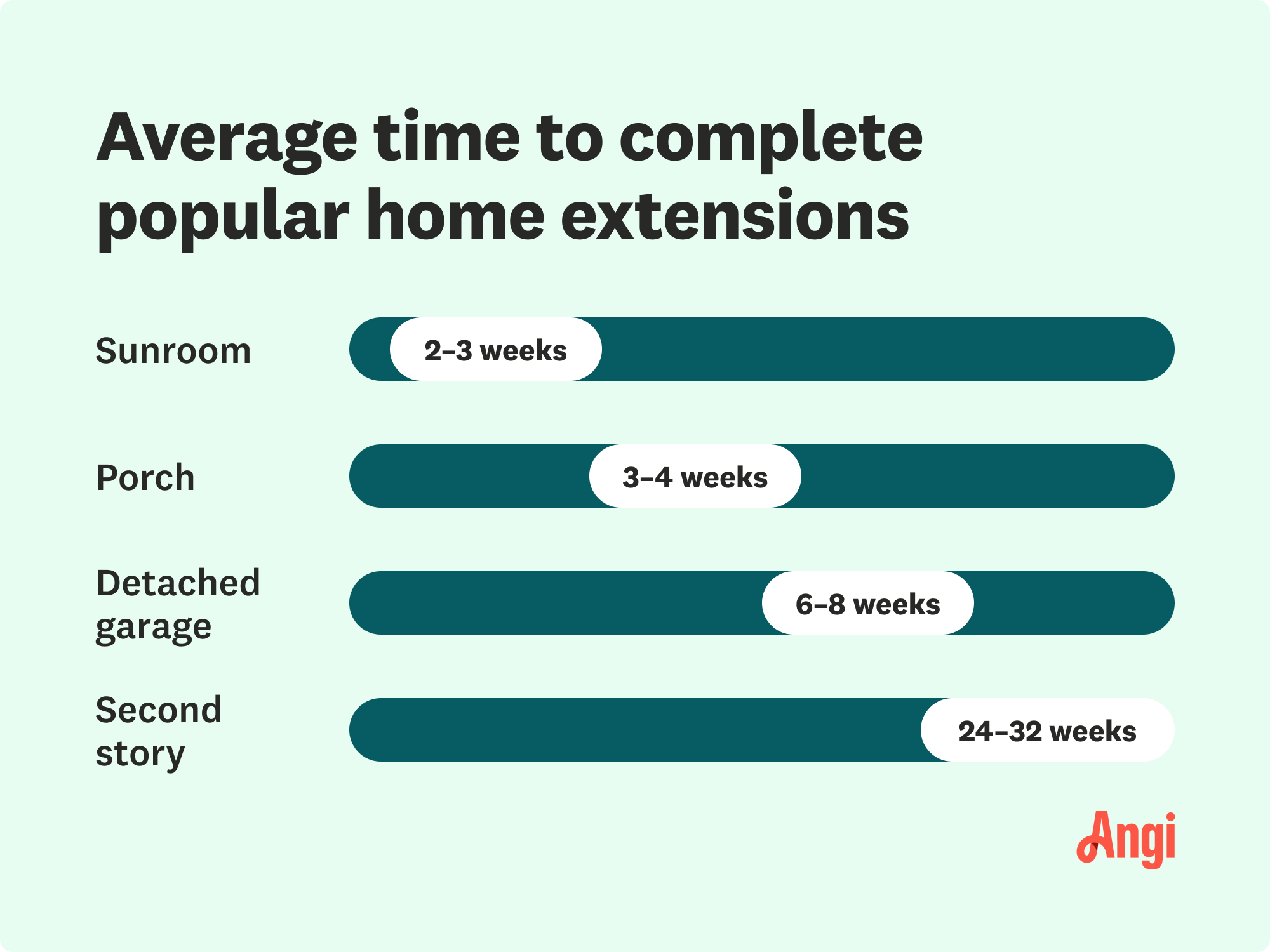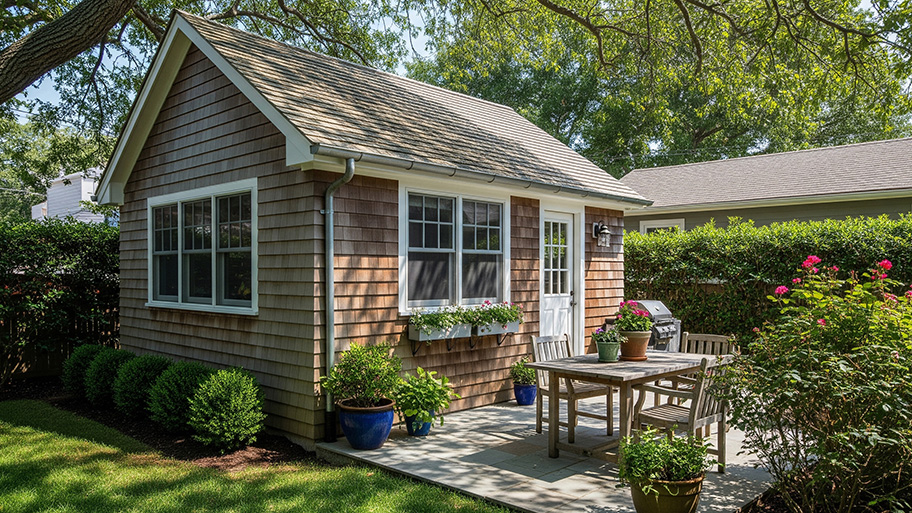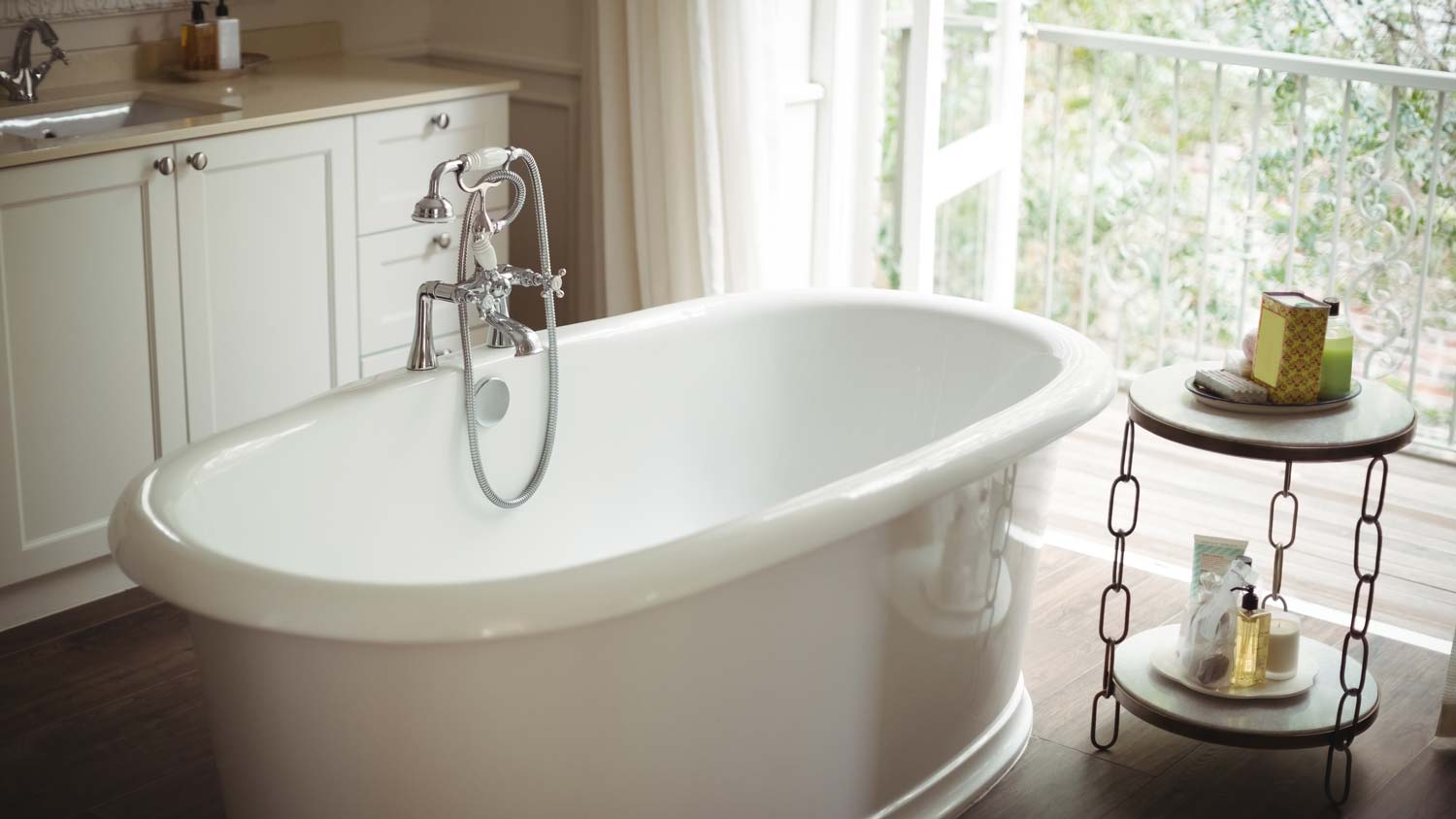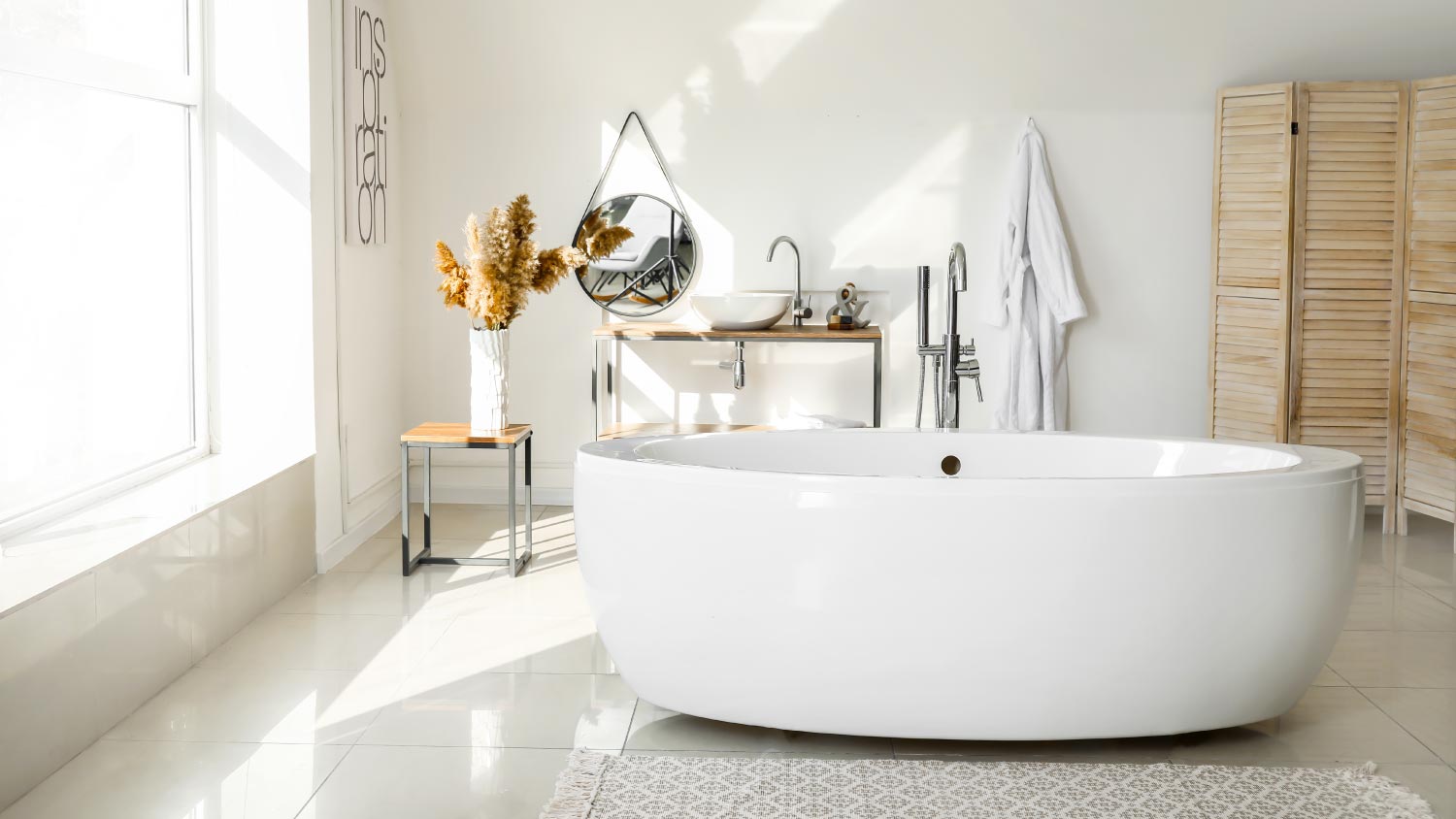
From budget-friendly builds to advanced plans fit for a gourmet chef, the price to build a kitchen can vary. Learn the average kitchen installation cost.
Kitchen and bathroom remodel costs depend on your project and location. Check with a local pro for your specific job.
The type and size of the home addition you build are the most significant cost factors to consider.
A second-story addition costs twice as much as building out from your existing home.
Home additions provide an average ROI of between 20% and 50%, depending on the quality and type.
Be sure to budget for an architect to design your addition, as well as building permit costs, which can add thousands to your total.
The average home addition cost is $51,032. You could pay as little as $4,000 to build a small bump-out for a small dormer to an attic or a balcony addition, and prices can climb up to $160,000 for a full second-story addition. Your price will depend mostly on the type of home addition you build and how you plan on using the space.
Home additions cost between $80 and $200 per square foot if you’re building out and between $300 and $500 per square foot if you’re building up. The cost to add a 10x10 room to a house costs an average of $12,500 if you build out and $40,000 if you build up.
Where in those ranges your total falls also depends on the complexity of the room and its finishes. For example, a bedroom will cost between $80 and $160 per square foot, whereas adding a bathroom costs between $150 and $200 per square foot.
| Project Size (Square Feet) | Bump-Out Build | Second Story Build |
|---|---|---|
| 60 | $4,800–$12,000 | $18,000–$30,000 |
| 80 | $6,400–$16,000 | $24,000–$40,000 |
| 100 | $8,000–$20,000 | $30,000–$50,000 |
| 150 | $12,000–$30,000 | $45,000–$75,000 |
| 200 | $16,000–$40,000 | $60,000–$100,000 |
| 300 | $24,000–$60,000 | $90,000–$150,000 |
| 400 | $32,000–$80,000 | $120,000–$200,000 |

The cost to add on a room varies based on the type and size of the room you’re building. Rooms like kitchens and bathrooms require plumbing work that a bedroom doesn’t, while an unfinished attic home addition may not require electrical or HVAC work that a bedroom needs. The cost per square foot for your home addition will vary based on utilities and the finishes required for how you plan on using the extra square footage.
| Room Type | Average Cost Range |
|---|---|
| Attic | $40,000 |
| Bathroom | $35,000 |
| Bedroom | $62,500 |
| Dining room | $30,000 |
| Kitchen | $55,000 |
| Laundry room | $8,000 |
| Living room | $30,000 |
| Mudroom | $12,000 |
| Sunroom | $47,000 |
| Detached garage | $26,400 |
| In-law suite | $82,750 |
| Second-story | $175,000 |
Labor accounts for 40% to 60% of your total home addition cost, or between $28,000 and $42,000. Most of this will go toward a home addition contractor. This professional will handle most of the work, including pouring the foundation, if necessary, framing the build, installing the roof, and finishing the space. They may subcontract some projects to specialists, like plumbers and electricians, but those costs are included in the home addition contractor’s pricing.
Some contractors offer free estimates, but if your project requires substantial consulting or design work, you may need to factor in an extra $150 to $1,000 to cover the expense of the consultation and design.
Below are some of the jobs your home addition pro will carry out, along with average costs.
Foundation pouring: $5–$37 per sq. ft.
Framing: $4–$16 per sq. ft.
Roof installation: $4–$11 per sq. ft.
Interior finishes: $30–$300 per sq. ft.
You may need an architect or a structural engineer to draw up plans for your home addition to get the approval to build from your local building department. A local architect charges between $2,400 and $14,000 to design a home addition, depending on what you need and how large the addition is.
Drawing up blueprints: $800–$2,700
Structural drawings: $500–$2,000
As-built drawings: $700–$1,300
Depending on the scope of your project, making your home addition ideas a reality will require the skills of several subcontractors. If you hire a home addition contractor to build your addition, these services will be included in your total project cost. If you manage the project yourself, you'll need to hire the ones you need along the way. In either case, here's what to expect in terms of subcontractor costs.
Interior painter cost: $2–$6 per square foot
Roofer cost: $4–$11 per square foot
Electrician cost: $50–$100 per hour
HVAC technician cost: $100–$250 per hour
Plumber cost: $45–$200 per hour
Carpenter cost: $75–$125 per hour
Structural engineer cost: $200–$1,500
Landscaper cost: $1,200–$6,200
Your home's geographic location will affect the cost of your home addition project. Expect costs to reflect the price of living in your area. For example, for those living in rural areas or where the cost of living is low to moderate, labor costs will be relatively low as well.
There are many other factors that can affect how much your home addition costs, so make sure to account for all of the following.
Remember that if you add square footage to your home, the cost of your homeowners insurance will increase accordingly. Before you embark on this project, speak to your insurance company about expected costs.
The permits you need for a home addition may include structural, electrical, plumbing, gas, and other local ones outlined by your municipality. The average cost of a building permit is $1,300, but it can cost as little as $150 in rural areas or as much as $7,500 in some cities.
As you can imagine, it takes many kinds of building materials to complete a custom home addition. Material prices vary widely, so your price could push closer to $83,356 if you choose luxury or high-end materials at each step of the way.
| Home Addition Material | Average Cost |
|---|---|
| Bathroom vanity | $300–$2,200 |
| Drywall | $1.50–$3 per sq. ft. |
| Exterior Door | $500–$2,300 each |
| Flooring | $2–$25 per sq. ft. |
| Insulation | $0.30–$6.75 per sq. ft. |
| Interior Door | $350–$1,200 each |
| Kitchen cabinets | $2,000–$11,000 |
| Roofing | $1.50–$30 per sq. ft. |
| Siding and Trim | $1–$30 per sq. ft. |
| Window | $300–$2,500 each |
On average, site prep for a home addition costs between $1,500 and $5,000. You may not need any site prep in some cases, while other home addition projects may require grading land, demolishing concrete patios, removing trees, and other work that can add to your total.
Home additions are expensive projects to begin with, and many home improvement projects can go over estimate, usually anywhere from 5% to 20% of the project quote due to unexpected costs or change orders. It’s a good idea to make some effort to save on the cost without sacrificing quality. There are a few key things you can do to save.
Choose standard finishes. Materials account for an average of 50% of your total, so choose budget-friendly options over luxury ones wherever possible.
Opt for a simple home addition floor plan with standard height ceilings.
Complete some tasks yourself, such as painting the family room or installing light fixtures.
Compare bids from at least three home addition contractors to ensure the best value.
Research whether you qualify for tax credits or refunds. Sometimes, home additions are considered capital improvements with energy-efficient designs.
Build an extension out from your existing house instead of adding to the second floor. This can instantly reduce your costs by up to 50%.
When financing a home addition, you have a range of loan options depending on your financial situation. These include:
HELOC loans: A home equity line of credit is ideal for homeowners who don’t know what their total will be and have equity in their home to draw from.
Home equity loans: These are like HELOCs, but you get the funds in a lump sum, so they’re best if you have some equity and know what your home addition will cost.
Personal loans: These loans have a quick approval process but often have higher interest rates. However, they don’t require that you have equity in your home.
Credit cards: Credit cards are often best for small extension costs due to the low borrowing limit. They provide rapid approval and don’t require equity but have some of the highest interest rates.
Cash-out refinance: This involves refinancing a home you have equity in and taking out the equity to fund your home addition costs.
As with all these loan options, always speak with a financial advisor before refinancing your home for home projects.
Home additions provide an ROI of between 20% and 50%. If you can save money during the project, you could see up to an 80% return. Your ROI depends heavily on the type of addition you build and the project's cost.
When it comes to putting an addition on your home, hiring a professional contractor near you will ensure that your project is completed efficiently, correctly, and up to code. Pros will bring their years of experience, access to the right tools, and industry knowledge that could prevent costly or even dangerous mistakes. The cost of a professional team depends on your location and the project's size.
A construction project as large as a home addition can be a stressful and costly endeavor. Given the numerous steps, processes, and permits required, it is essential to contact a professional.
Construction pros have crucial knowledge of safety codes and permit requirements, especially when it comes to electrical, plumbing, and structural soundness.
They will coordinate timelines and manage subcontractors, ensuring the project stays on track and saving you the headache.
Skilled builders can spot potential problems early and handle them safely and efficiently.
A home addition that seems doable might balloon in cost: National averages suggest around $50,000, but many projects exceed $100,000 when complexity rises. However, there are a few tasks that you might be able to DIY to keep those prices down.
Painting on your own can save $300 to $800, depending on the size of the room.
DIY cleaning and waste disposal can keep labor costs lower, but you must research potential hazardous materials to determine if they require specific disposal methods.
Let the pros handle wiring, but you can install light fixtures yourself.
Discuss the full scope of your project, including electrical, plumbing, painting, and moving.
Ask about permits you’ll need to construct your addition.
Be prepared to adjust your budget depending on whether you are building the addition from scratch or atop an already constructed portion of the home.
Plan out exact dimensions for the addition, including space for insulation, venting, and electric/plumbing.
Home is the most important place on earth, which is why Angi has helped more than 150 million homeowners transform their houses into homes they adore. To help homeowners with their next project, Angi provides readers with the most accurate cost data and upholds strict editorial standards. We’ve surveyed thousands of real Angi customers about their project costs to develop the pricing data you see, so you can make the best decisions for you and your home. We pair this data with research from reputable sources, including the U.S. Bureau of Labor Statistics, academic journals, market studies, and interviews with industry experts—all to ensure our prices reflect real-world projects.
Want to help us improve our cost data? Send us a recent project quote to [email protected]. Quotes and personal information will not be shared publicly.
From average costs to expert advice, get all the answers you need to get your job done.

From budget-friendly builds to advanced plans fit for a gourmet chef, the price to build a kitchen can vary. Learn the average kitchen installation cost.

A bidet—stand-alone, attachment, spray nozzle, or toilet combo—reduces toilet paper usage and saves money, but how much is a bidet? Here’s how much you’ll pay.

Accessory dwelling units can be a smart investment, but your ADU cost will depend on the size, type, and materials you choose. Here’s how it breaks down.

When comparing a steam shower versus a sauna, some factors can impact which one is best for you, including installation, temperature, treatment, and cost.

An updated bathtub can give a bathroom a whole new look. Find out how much it costs to replace a bathtub in Dallas, TX, including prices by type and labor costs.

An updated bathtub can give a bathroom a whole new look. Find out how much it costs to replace a bathtub in Columbus, OH, including prices by type and labor costs.